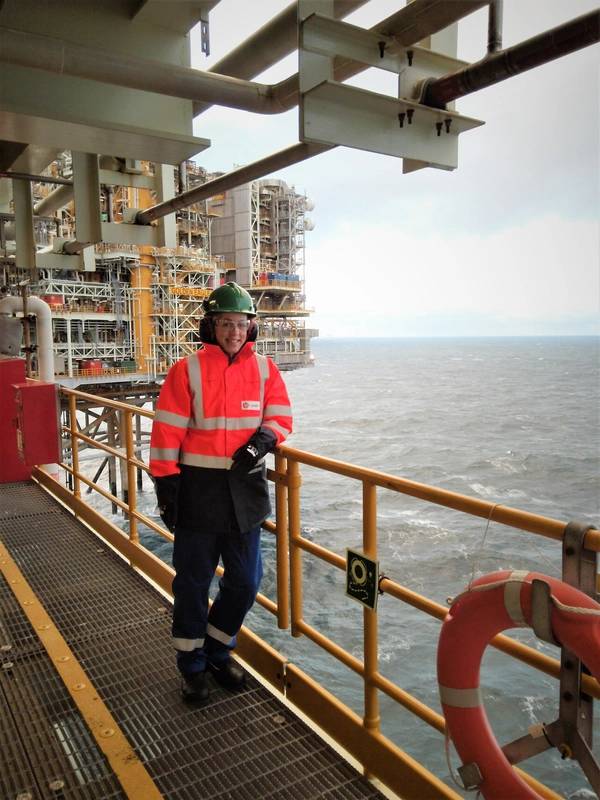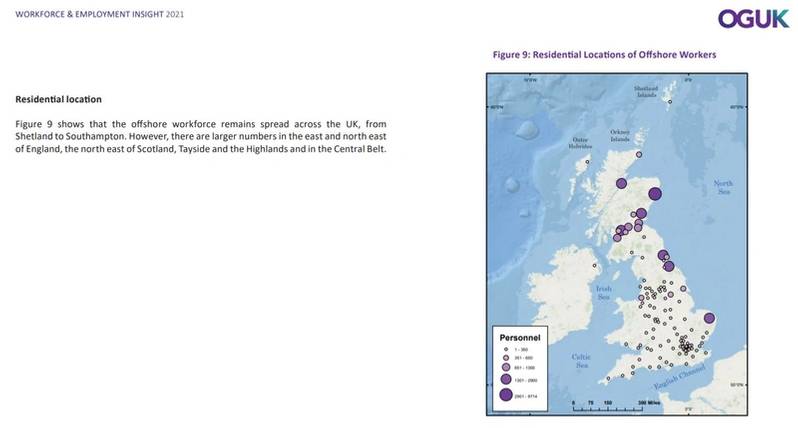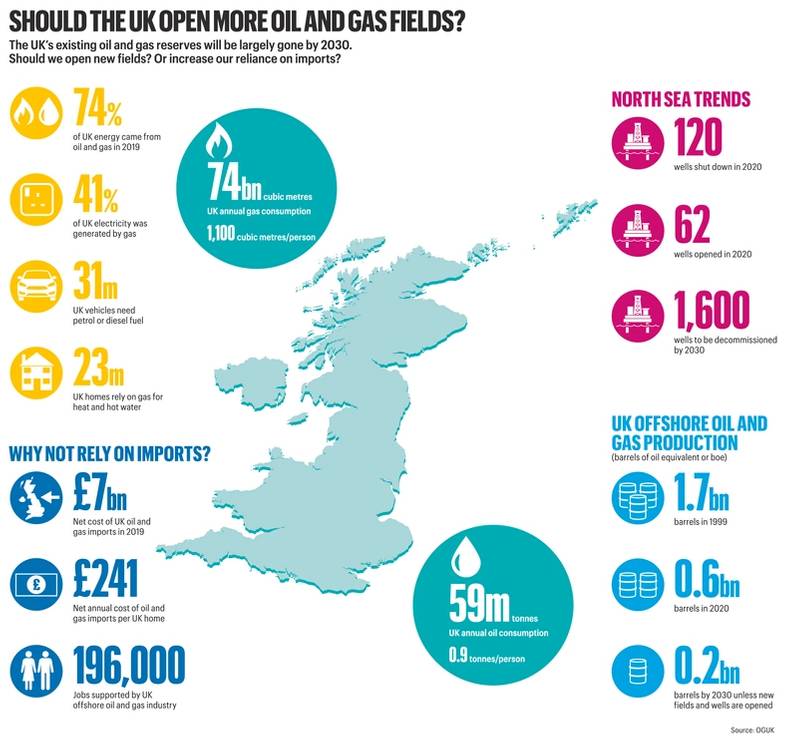
Believe it or not, the UK’s oil and gas industry is the nation’s best bet for building a green and low-carbon future – and that includes opening new oil fields like Cambo, writes Katy Heidenreich, operations director at Oil & Gas UK (OGUK) which represents the UK offshore industry.
Shell’s decision to suspend its involvement in Cambo, the UK’s next big oil field development, sent shockwaves through our industry last week. And when I say ‘our industry’ I’m thinking not so much about the companies involved in oil and gas – though they are important – but of the 200,000 or so people whose jobs and livelihoods will now be feeling just a little less secure.
They are the backbone of an industry that works through the year to keep our country running. They supply the gas that helps heat 24 million (83%) of UK homes and generates nearly half our electricity.
They also produce oil that gets refined into the petrol, diesel and other fuels that power our cars, vans, buses and trains.
Right now, 10,000 of them are living offshore on 250 oil and gas installations in the North Sea, the Atlantic waters north of Scotland, and the Irish Sea. Those workers come from all over the UK - but many are concentrated in particular regions. These include:
East Anglia, especially Norwich,
Liverpool,
Newcastle,
Middlesbrough,
Scotland’s central belt,
Dundee,
Aberdeen
Inverness
Hundreds live in or around London
Many come from as far afield as Cornwall, Wales and Northern Ireland. Credit: OGUKWherever they live they are contributing to the economy of their region. When offshore, however, their job is to keep the energy flowing to heat our homes, cook our food, and power our roads and businesses. Tens of thousands more are working onshore in the supply chain, with firms based all around the UK providing engineering, manufacturing, and other services.
Credit: OGUKWherever they live they are contributing to the economy of their region. When offshore, however, their job is to keep the energy flowing to heat our homes, cook our food, and power our roads and businesses. Tens of thousands more are working onshore in the supply chain, with firms based all around the UK providing engineering, manufacturing, and other services.
Our country relies on those workers – the UK gets 73% of its total energy from oil and gas. For Scotland the levels are even higher – in 2020 it relied on oil and gas for 78% of its total energy and 91% of its heating.
In the future we will rely on them for new forms of energy too. Over the next couple of decades, the oil and gas workers of today will become the people who build and maintain our wind turbines, carbon capture systems, hydrogen production factories and other hardware needed for Britain’s low carbon future.
That future needs a lot of work and a detailed plan. The UK has a target of becoming carbon neutral by 2050. But we will not hit that target by shutting down our existing oil and gas fields or stopping new ones being developed.
In fact, stifling our existing energy industry would have exactly the opposite effect. It would wipe out the jobs and the workforce skills, such as marine engineering and construction, which are essential to hit that 2050 target.
It would also be expensive. At the moment the UK produces only half the 74 billion cubic meters of gas it consumes annually. It also produces 53 million tonnes of oil – and consumes 59 million tonnes. Last year importing the extra gas and oil needed to make good those production gaps cost the nation about £7 billion net – around £250 per household.
Why, though, do we need new oil and gas fields on top of the ones we’ve already got? This is down to geology – the UK is blessed with lots of oil and gas, but it’s not found in massive reservoirs like those found in Russia and the middle east. Instead, it’s spread out across hundreds of smaller reservoirs. That means some are always becoming depleted and so need to be replaced by new ones. Credit: OGUK
Credit: OGUK
The next ten years, for example, will see 1,600 oil and gas wells being decommissioned. These closures would also see UK production of oil and gas plummet by 75% - unless we open new fields. That decline would be far sharper than any reduction we could achieve in demand – so imports would surge with householders and businesses facing all the extra resulting costs.
This is why we need new fields like Cambo. They won’t boost overall production, but they will maintain it. And that will help maintain the flow of energy needed to see us through till 2050. By then, hopefully, there will be far less need for new oil and gas fields
There are big challenges ahead. We need the government’s help to persuade the drivers of 32 million diesel and petrol vehicles to switch to an alternative. How can we affordably change the boilers, gas cookers, and fires that heat 24 million UK homes? There’s also the 35 or so gas-fired power stations that provide nearly half our electricity.
Those challenges are for the government and for all of us as consumers – but the point is that if we don’t cut demand then emissions are never going to decline. We could shut down the whole UK oil and gas industry, but the only result would be to send imports surging – with no reduction in emissions. The reductions will come only when we find low-carbon replacements for the machines, vehicles, and appliances that power our homes, businesses, and transport.
Planning and implementing that transition will take years of painstaking work and research. For environmental groups that’s a much tougher and less attractive task than firing broadsides at the oil and gas industry. Our industry, by contrast, is already working to build the low-carbon infrastructure for our future.
We are building two UK projects to capture CO2, the main global warming gas, and planning three more. We are also looking at hydrogen production plants and building and operating ever-larger wind and solar farms. The environmental groups want to tear down the past, but my industry is, literally, building a sustainable future.
This is an Op-ed article. The opinions expressed in this article are the author’s own and do not necessarily reflect the views or positions of Offshore Engineer.